
A new composition by clarinetist and composer Magnus Granberg, the leader of the highly acclaimed ensemble Skogen, this time with a new, smaller group that includes percussionist Erik Carlsson, performing his beautiful, melancholic music.
In Stock
Quantity in Basket: None
Log In to use our Wish List
Shipping Weight: 3.00 units
EU & UK Customers:
Discogs.com can handle your VAT payments
So please order through Discogs
Sample The Album:
Magnus Granberg-clarinet
Anna Lindal-violin
Erik Carlsson-percussion
Kristine Scholz-prepared piano
Leo Svensson Sander-cello
Click an artist name above to see in-stock items for that artist.
Label: Another Timbre
Catalog ID: at84
Squidco Product Code: 20550
Format: CD
Condition: New
Released: 2015
Country: UK
Packaging: Cardboard Gatefold
Recorded at Atlantis, in Stockholm, Sweden, on April 16th 2014 by Janne Hansson.
Interview with Magnus Granberg
Your work with the larger group Skogen is now relatively well-known, and indeed successful. Why the change of group formation for this release? And in particular why the absence of electronics, which was such a feature of your two Another Timbre discs with Skogen?
Well, partly because of some quite trivial, practical and arbitrary reasons, actually. Firstly, I had some sort of desire to be part of an ensemble performing my music playing the clarinet instead of the piano, as I normally have done the past few years. I finally started practicing and playing the clarinet four years ago after having thought about it for some years, and simply wanted to play it and find a place for it within my music. Secondly, I had wanted to do something together with Kristine Scholz for some time: she's a brilliant pianist who's done a wonderfully heroic and consistent work performing and premiering new, interesting music in Sweden since she moved here from Germany in the early seventies, quite often together with the equally brilliant pianist Mats Persson, with whom she's had a longstanding duo.
As regards the absence of electronics, I also had this somewhat vague idea (or whim, perhaps) of doing something slightly closer to a traditional chamber music setting, but which still would allow the music to take place in some sort of clair-obscur or twilight zone between pitch and noise: the piano is obviously prepared, as are the strings at times; there's percussion and the clarinet plays multiphonics to a large extent. And the most trivial and practical reason, perhaps, was that I simply wanted to play with an ensemble where all players live in the Stockholm area.
Yes, that twilight zone between pitch and noise is still very much the place where the music is operating. But tell me more about your interest in the clarinet. As I understand it, you took it up as an alternative to the alto saxophone, which you have played for a long time. Why choose clarinet rather than saxophone for pieces such as this?
Yes, as you say, I have a background as a saxophone player; it was the first instrument I learned to play (at eleven), and it was also my main instrument for many years before I turned into a so-called composer/performer playing the piano with Skogen. And the reason for starting to play the clarinet was partly the same reason why I started writing music: around the age of twenty-five I was becoming increasingly troubled with my history with the saxophone, with the way my 'self' and my physiognomy always seemed to be a little bit too present within the music I played. What I wanted was to find a way of dissolving or disappearing into the music. Of course other saxophonists (and other instrumentalists as well, for that matter) have found their own solutions to this problem (or sometimes perhaps don't consider it to be a problem). But I felt that part of the nature of the instrument was a kind of obtrusiveness, the way the saxophone tends to dominate a context with regard to timbre and projection regardless of how softly you play, and particularly when you play in a more conventional style. The clarinet, on the other hand, seems to blend more easily with other instruments, making it somewhat easier to become a part of the sound of the music itself. And the clarinet is also a wonderfully dynamic and complex instrument in regard to timbre and dynamics, which I find interesting to explore.
Tell us about the title: 'would fall from the sky, would wither and die' Where does it come from, and why?
The title is a compound of a couple of lines from a popular song from the 1930s, 'If I Should Lose You', from which the harmonic material of the piece was culled, and indeed rather heavily transformed. As to why I chose to use those lines as the title, I guess it's just a rather natural and convenient way of paying homage to a music which to a certain degree has influenced me and served as an impulse for making music - in this particular respect also in a very concrete way. It's also a song which I used to play quite often as a young aspiring jazz musician and which I've listened to for many years, as recorded by Charlie Parker, Billie Holiday, Chet Baker and others. The piece was, by the way, also composed at a time when my wife was seriously ill, so initially it was also, albeit in a very informal way, dedicated to her and our son.
Yes, I always find the end of the piece really sad as the music gradually withers away. With this piece, and 'despairs had governed me too long', and to some extent 'ist gefallen in den Schnee', you seem to be generally drawn to the melancholic in your compositions. Is this a conscious thing?
Well, the concept of melancholy is of course a very old one and its meanings have shifted quite a lot through the ages, I guess. But I think that I can relate to, for example, Italo Calvino's remark on melancholy in his 'Six Memos for the Next Millennium': "melancholy is sadness that has taken on lightness". Melancholy as sadness which somehow has been transformed, which has reached a state of equilibrium: a matter of gravity and moderation, perhaps. And the act of making (or listening to) music might very well serve as such an act of transformation and liberation. That's something that has been observed by many people through the ages, from various blues musicians to Robert Burton in his 'The Anatomy of Melancholy', to name just a couple of examples.
As I understand it, all of your compositions take melodic or harmonic material from existing works, and then re-work that material heavily so that the original is no longer recognisable, but what is left is a kind of harmonic (or even tonal?) coherence underlying each composition. Without asking you to reveal the detail of your method, can you say if this is roughly accurate, and why you have chosen to work in this way?
Yes, that's more or less the way I've been working for some years now: letting preexisting musical materials (rhythmic fragments, tonal materials) serve as a creative impulse which then are interbred with certain methods which transform the original materials and turn them into something quite different. As to why I have chosen to work this way, I think it stems from a couple of different reasons. On the one hand it serves as a way of taking care of and treasuring certain musical impulses that have moved or influenced me in some way, but without submitting to mere reproduction of the originals, but rather to let the original material live on in a new, but different form.
On the other hand it allows me in some cases to approach musics that I'm drawn to but of which my knowledge and experience is somewhat limited, technically and historically, but which nonetheless exert a strong appeal to me. So, without perhaps being able to grasp these musics in their totality, I can at least approach fragments of them, getting more intimately acquainted with the music via these smaller fragments, and letting them become part of a new music which in turn is very much informed by fragments of other musics. And all these fragments together are formed into a new whole where the different impulses may not always be immediately traceable, but are still in some way present in the subtext of the music.
Yes, there also seems to be a particular interest in harmonic material in your composed music. The noise elements in your pieces, and several of the musicians who you choose to play with, clearly come from the soundworld of recent improvised music, but it's obviously difficult to work with harmonic material in a purely improvised setting. Is an interest in harmony what pushed you towards composition in the first place?
What pushed me towards composition at the time was rather a certain inconvenience with how composition worked in most cases, and a similar inconvenience with how free improvisation worked. And also a certain inability or reluctance to submit to the division between these practices as well as the different unspoken, stylistic rules that governed them. That at least was the way I perceived the situation when I started thinking of a solution to the problems as I saw them, rightly or wrongly. I think I very much perceived it being presented as an either/or situation, while I felt uneasy with this division between the coherency of composition and the individual and collective freedoms of improvisation. So, the question as I saw it was something like this: how do I create a music which satisfies certain needs and interests of mine while still maintaining a great deal of individual and collective freedom for all participants that would, paradoxically enough, be coherent and unpredictable at the same time without separating the practices of composition and improvisation? And my answer to that was quite simply to compose materials with certain characteristics that the musicians could choose freely from, treating them in different ways, improvising with them according to certain guidelines. And tonality, or rather modality (and modal harmony) to be correct, was at least one aspect of that coherency (including ideas of intervallic coherence within and between harmonic and melodic materials), while aspects of unpredictability would include how all these different materials are combined and treated differently, individually and collectively in a semi-improvised heterophonic situation.
Lastly then, what are your current musical projects, and what's next for you?
Well, I was very happy to have the opportunity rehearsing, performing and recording a new piece of mine in Basel the other month. Spinet player Christoph Schiller had put together this wonderful ensemble of (mainly Swiss) musicians with experiences from the fields of contemporary music, improvisation and early music, and it all worked out very, very well, I think. And for the time being I'm just about getting started writing some new music for a project with Skogen which will be recorded this summer. I'm very much looking forward to it.
Artist Biographies
• Show Bio for Magnus Granberg "Magnus Granberg is a composer and performer working at an intersection between contemporary chamber music and improvisation. He is based in Stockholm, Sweden. Born in Umeå in 1974, he studied saxophone and improvisation at the University of Gothenburg and in New York in his late teens and early twenties. Self-taught as a composer, he formed his own ensemble Skogen in 2005 trying to integrate experiences, methods and materials from various traditions of improvised and composed musics into a new modus operandi. Now mainly working with the ensemble Skogen and the newly formed Skuggorna och ljuset, while also writing music on commission for different ensembles and projects. He is also active as an improvisor in different contexts, mainly playing the clarinet. His music has been performed in Norway, Sweden, Switzerland, the United States, England, Austria, Hungary and Slovenia, broadcast by public radio channels in England (BBC Radio 3 and 6), Germany (SWR 2), Sweden (SR P2), Estonia, Slovenia, Serbia, Hungary and the United States, and has been published by the British record label Another Timbre. Recent work includes a commission from Another Timbre and Ensemble Grizzana and collaborations with musicians such as David Sylvian, Christoph Schiller and the Swiss duo Diatribes. He has in the last decade also, more or less regularly, collaborated with musicians such as Angharad Davies, Tisha Mukarji, Tetuzi Akiyama, Toshimaru Nakamura, Anna Lindal, Kristine Scholz, Rhodri Davies, Simon Allen, Christoph Schiller and Ko Ishikawa." ^ Hide Bio for Magnus Granberg • Show Bio for Anna Lindal "Anna Lindal, violin, studied in Sweden and Switzerland. Lived and performed in Switzerland and France for many years, played in the string trio Trio des Lyres specialized in mixed programs with barock and classical music on original instruments as well as contemporary works. During this time the film "Livsstråk" was made which is a musical portrait of Anna Lindal. From 1983 to 2001 concertmaster of the Royal Philharmonic Orchestra in Stockholm and from 2002 Professor of violin at the Royal college of Music in Stockholm. Currently Professor in Music att Stockholm University of the Arts and free lance violinist. Engaged in artistic research on interpretation/improvisation and tradition/convention versus contemporary expressions. Performs regularly as soloist, as chamber musician, in experimental theatre and in different groups for free improvisation. Collaborates with a large number of contemporary composers and has had many new compositions dedicated to her. Made several recordings, among others two solo records with works by John Cage and Christian Wolff together with related composers. Has also been performing instrumental Argentine Tango in the quintet Tango Libre for several years." ^ Hide Bio for Anna Lindal • Show Bio for Erik Carlsson "Erik Carlsson is an improvising percussionist whose blissful sounds resound throughout the world. Apart from performing solo, he is also heard with musicians and ensembles such as Toshimaru Nakamura, Tetuzi Akiyama, Martin Küchen, Chip Shop Music, Skogen and Mats Gustafsson's Swedish Azz." ^ Hide Bio for Erik Carlsson • Show Bio for Kristine Scholz "Kristine Scholz (born in Oława, Poland - once Ohlau in German Silesia) is a German pianist. Scholz studied at Hochschule für Musik und Theater Hamburg with Eckhart Besch and Konrad Richter, as well as Hochschule für Musik Köln with Wilhelm Hecker and Aloys Kontarsky. Since the early seventies, Scholz has made Sweden the base of her pianistic activity." ^ Hide Bio for Kristine Scholz • Show Bio for Leo Svensson Sander "Cellist Leo Svensson Sander is a member of Erlend Viken Trio, Eter (6), Gul 3, Skog Och Dal, Skogen, Skuggorna Och Ljuset, The Tiny, Walrus" ^ Hide Bio for Leo Svensson Sander
3/26/2025
Have a better biography or biography source? Please Contact Us so that we can update this biography.
3/26/2025
Have a better biography or biography source? Please Contact Us so that we can update this biography.
3/26/2025
Have a better biography or biography source? Please Contact Us so that we can update this biography.
3/26/2025
Have a better biography or biography source? Please Contact Us so that we can update this biography.
Have a better biography or biography source? Please Contact Us so that we can update this biography.
Track Listing:
1. Would Fall From The Sky, Would Wither And Die 45:35
Improvised Music
Compositional Forms
Quintet Recordings
European Improvisation, Composition and Experimental Forms
New in Compositional Music
Instruments with Preparations
Search for other titles on the label:
Another Timbre.


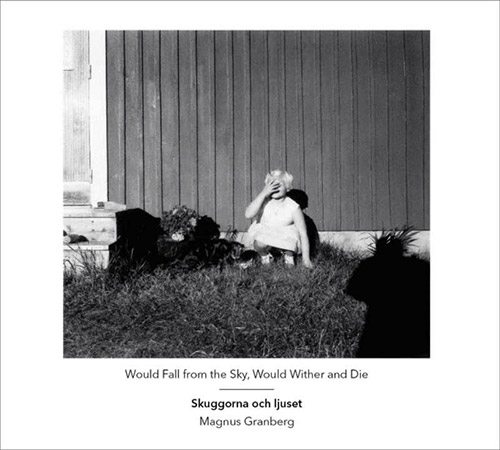

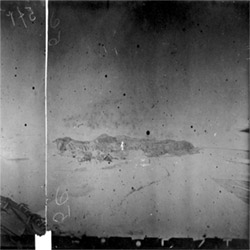
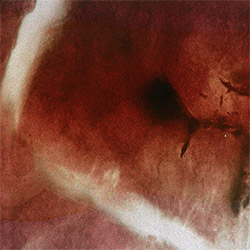
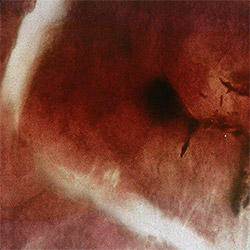

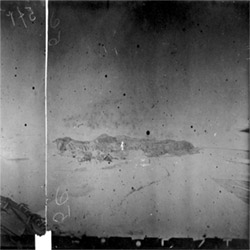
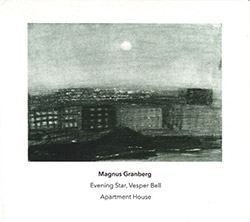

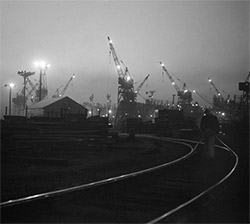
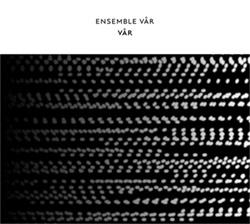







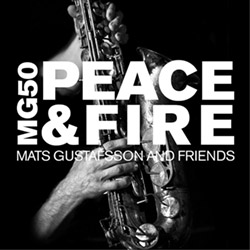




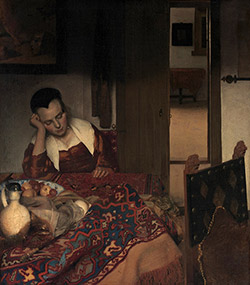
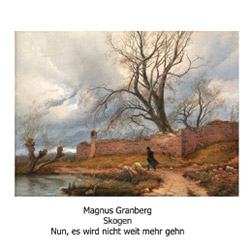






![Ackerley / Prymek / Turner: All Hope With Sleeping Minds [CASSETTE]](https://www.teuthida.com/productImages/misc4/35950.jpg)
![Myers, David Lee : Tin Drop Tear [BOOK w/ DOWNLOAD]](https://www.teuthida.com/productImages/misc4/36030.jpg)



![Schindler, Udo / Sandy Ewen / Damon Smith: Munich Sound Studies Vols. 4, 5 & 6 [3 CDs]](https://www.teuthida.com/productImages/misc4/35966.jpg)






![Turbulence Orchestra & Sub-Units: Smear Out the Difficulties (Double Live) [2 CDs]](https://www.teuthida.com/productImages/misc4/36048.jpg)
![Perelman, Ivo / Tyshawn Sorey: Paralell Aesthetics [2 CDs]](https://www.teuthida.com/productImages/misc4/35871.jpg)


![Sjostrom, Harri: SoundScapes #4 Festival Berlin 2023 [3 CDs]](https://www.teuthida.com/productImages/misc4/35874.jpg)

![Musicworks Magazine: #150 Winter 2024/25 [MAGAZINE + CD]](https://www.teuthida.com/productImages/misc4/36035.jpg)





![Glenn, Jordan: Flustered [CASSETTE]](https://www.teuthida.com/productImages/misc4/35948.jpg)


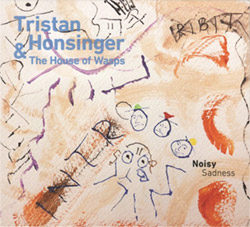
![Lindorff-Ellery, Evan: Church Recordings from Monhegan [CASSETTE]](https://www.teuthida.com/productImages/misc4/35949.jpg)
![Schindler, Udo / Werner Dafeldecker / Gunnar Geisse: Travelling Sound Images - Cognitive Transfers [Trio]](https://www.teuthida.com/productImages/misc4/35767.jpg)

![Egberth, Dennis: The Dennis Egberth Dynasty [VINYL]](https://www.teuthida.com/productImages/misc4/35549.jpg)


![Schindler, Udo / Rieko Okuda / Eric Zwang Eriksson: Disturbed Terrains [2 CDs]](https://www.teuthida.com/productImages/misc4/35330.jpg)
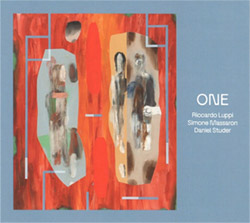
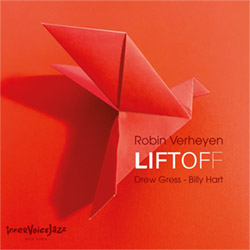
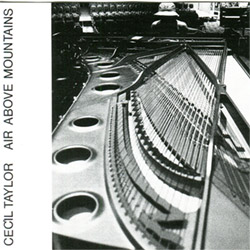


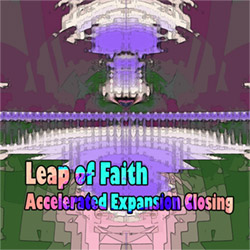
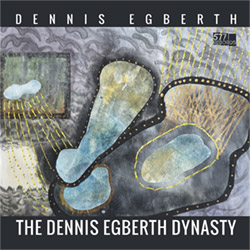
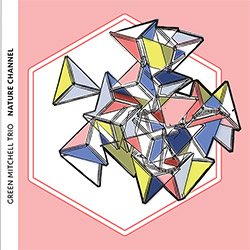

![Wolf Eyes / Anthony Braxton: Live At Pioneer Works, 26 October 2023 [VINYL]](https://www.teuthida.com/productImages/misc4/35839.jpg)




![Olencki, Weston : Pearls Ground Down To Powder [VINYL]](https://www.teuthida.com/productImages/misc4/35956.jpg)
![Myers, David Lee: Oculus [2CDs]](https://www.teuthida.com/productImages/misc4/35857.jpg)


![dustsceawung: dustsceawung [CASSETTE w/ Download]](https://www.teuthida.com/productImages/misc4/35753.jpg)




![Halls of the Machine: Atmospheres For Lovers And Sleepers [CASSETTE w/ DOWNLOAD]](https://www.teuthida.com/productImages/misc4/35806.jpg)



![AHC (Alexander Cooper): Lase [2 CDs]](https://www.teuthida.com/productImages/misc4/35754.jpg)



![Fagaschinski, Kai / Yan Jun : Graveyard Processions [VINYL w/ DOWNLOAD]](https://www.teuthida.com/productImages/misc4/35474.jpg)
![Brant, Cody / Carl Kruger: Smoke Detail [CASSETTE w/ DOWNLOAD]](https://www.teuthida.com/productImages/misc4/35551.jpg)







![Zorn, John / JACK Quartet: The Complete String Quartets [2 CDs]](https://www.teuthida.com/productImages/misc4/35609.jpg)

![Lonsdale, Eden: Dawnings [2 CDs]](https://www.teuthida.com/productImages/misc4/35480.jpg)







![Sanna, Claudio: Compositori Sardi Contemporanei II [2 CDs]](https://www.teuthida.com/productImages/misc4/35317.jpg)






![Zurria, Manuel: Fame di Vento [3 CDs]](https://www.teuthida.com/productImages/misc4/35167.jpg)


![Electric Bird Noise / Derek Roddy: 8-10-22 [CD EP]](https://www.teuthida.com/productImages/misc4/35970.jpg)








![Elephant9 : Mythical River [VINYL]](https://www.teuthida.com/productImages/misc4/34624.jpg)



![Elephant9 with Terje Rypdal: Catching Fire [VINYL 2 LPs]](https://www.teuthida.com/productImages/misc4/35355.jpg)
![Deerlady (Obomsawin, Mali / Magdalena Abrego): Greatest Hits [VINYL]](https://www.teuthida.com/productImages/misc4/34876.jpg)







![Surplus 1980: Illusion of Consistency [CD]](https://www.teuthida.com/productImages/misc4/35069.jpg)
![Staiano, Moe: Away Towards the Light [VINYL + DOWNLOAD]](https://www.teuthida.com/productImages/misc4/35037.jpg)



![Caveira (Gomes / Sousa / Abras / Ferrandini): Ficar Vivo [VINYL]](https://www.teuthida.com/productImages/misc4/34643.jpg)
![Coley, Byron: Dating Tips for Touring Bands [VINYL]](https://www.teuthida.com/productImages/misc4/17906.jpg)

![Lost Kisses: My Life is Sad & Funny [DVD]](https://www.teuthida.com/productImages/misc4/lostKissesDVD.jpg)